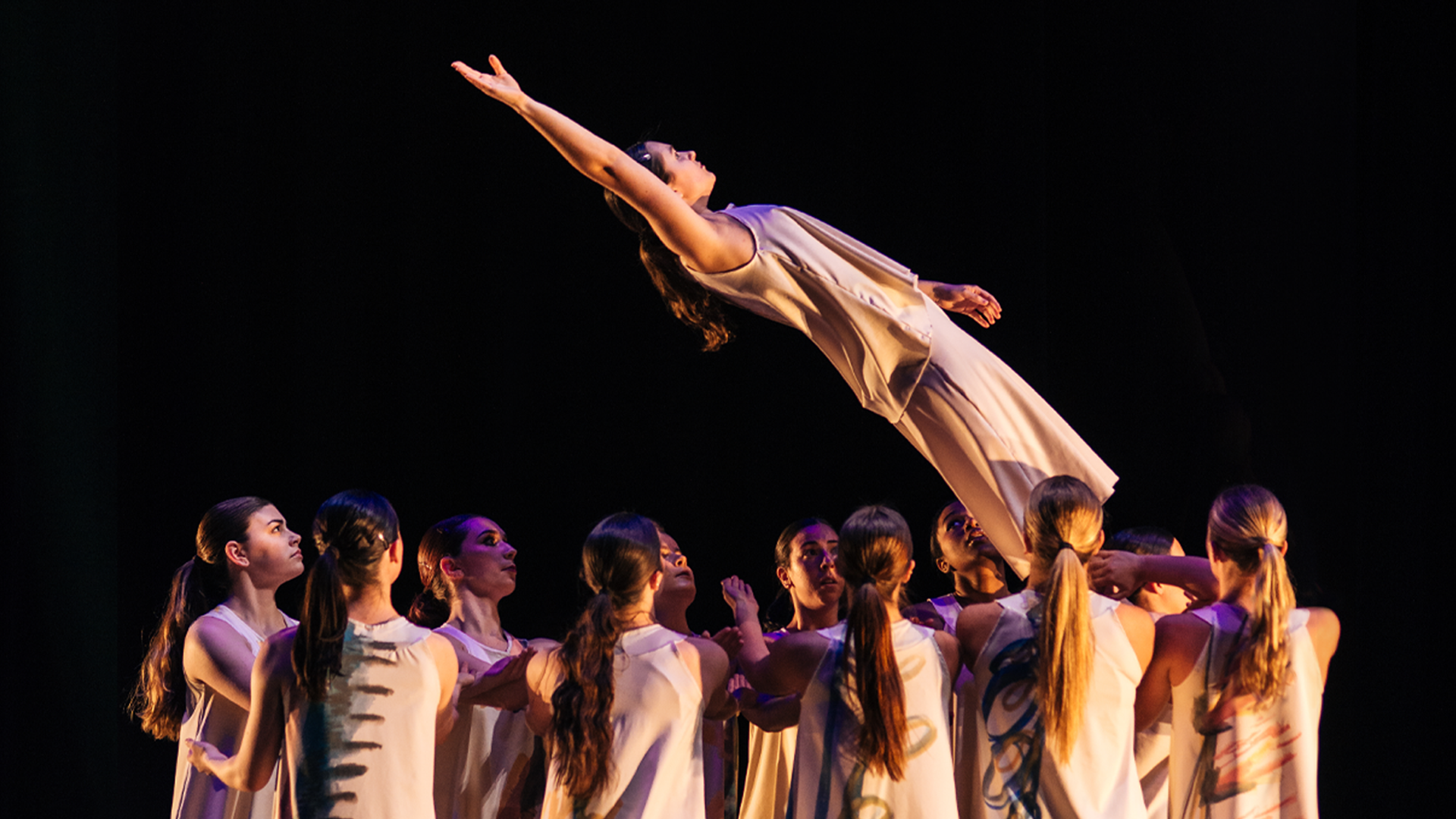Voices of America
November 3, 2024 │ 4 p.m.
Stewart Theatre
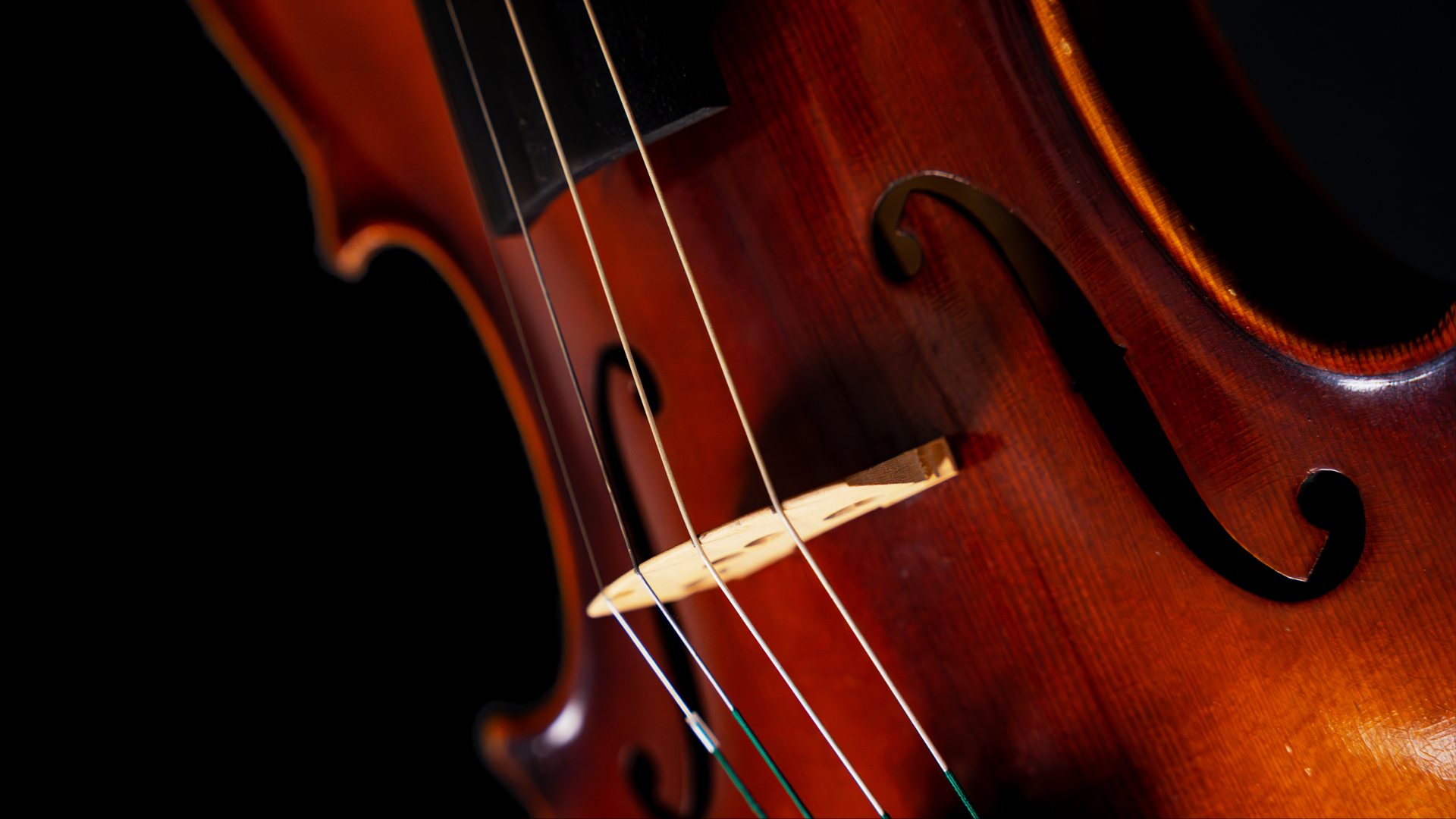
The NC State Department of
Performing Arts and Technology
IN CONJUNCTION WITH
Raleigh Civic Symphony Association
PRESENTS
Voices of America
Raleigh Civic Chamber Orchestra
With guest performances by
Andrea Edith Moore
Peter Askim, conductor
Performance Overview
PROGRAM
Elegy
John Corigliano
Prelude (North Carolina Premiere)
Julia Perry
arr. Roger Zahab
Ye, Who Seek the Truth (North Carolina Premiere)
Julia Perry
arr. Jannina Norpoth
The performances of Ms. Perry’s music are in commemoration of the 100th anniversary of her birth.
Beacons (World Premiere)
Ahmed Al Abaca
GUEST SPEAKER
Stephen Greene
Professor of Political Science, NC State University
Selections from “Eight Poems by Emily Dickinson”
Aaron Copland
- Nature, the gentlest mother
- The world feels dusty
- Heart, we will forget him
Andrea Edith Moore, Soprano Soloist
Nature, the gentlest mother (song texts)
Nature, the gentlest mother
Impatient of no child,
The feeblest or the waywardest,—
Her admonition mildIn forest and the hill
By traveller is heard,
Restraining rampant squirrel
Or too impetuous bird.How fair her conversation,
A summer afternoon,—
Her household, her assembly;
And when the sun goes downHer voice among the aisles
Incites the timid prayer
Of the minutest cricket,
The most unworthy flower.When all the children sleep
She turns as long away
As will suffice to light her lamps;
Then, bending from the sky,With infinite affection
And infiniter care,
Her golden finger on her lip,
Wills silence everywhere.— Emily Dickinson
The world feels dusty (song texts)
The world feels dusty,
when we stop to die…
We want the dew then
Honors taste dry…Flags vex a dying face
But the least fan
stirred by a friend’s hand
Cools like the rainMine be the ministry
when thy thirst comes…
Dews of thyself to fetch
and holy balms.— Emily Dickinson
Heart, we will forget him (song texts)
Heart, we will forget him
You and I, tonight.
You may forget the warmth he gave,
I will forget the light.When you have done, pray tell me,
That I my thoughts may dim;
Haste! lest while you’re lagging,
I may remember him!— Emily Dickinson
To Make a Prairie (World Premiere, Orchestral Version)
Peter Askim
Andrea Edith Moore, Soprano Soloist
Text by Emily Dickinson
To make a prairie it takes a clover and one bee,
One clover, and a bee.
And revery.
The revery alone will do,
If bees are few.— Emily Dickinson
Lady of the Harbor
Lee Hoiby
Andrea Edith Moore, Soprano Soloist
Text from The New Colossus by Emma Lazarus
“Give me your tired, your poor,
Your huddled masses yearning to breathe free,
The wretched refuse of your teeming shore.
Send these, the homeless, tempest-tost to me,
I lift my lamp beside the golden door!”— Emma Lazarus
COMPOSER AND PERFORMER BIOS
Peter Askim
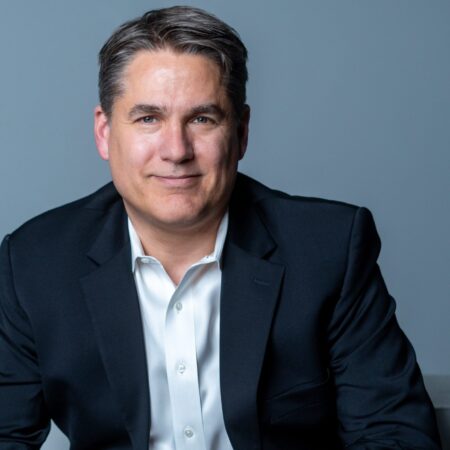
Active as a composer, conductor and collaborative connector, Peter Askim is the Artistic Director of The Next Festival of Emerging Artists and the conductor of the Raleigh Civic Symphony and Chamber Orchestra, as well as Director of Orchestral Activities at North Carolina State University. He was previously Music Director and Composer-in-Residence of the Idyllwild Arts Academy Orchestra. He has also been a member of the Honolulu Symphony Orchestra and served on the faculty of the University of Hawaii-Manoa, where he directed the Contemporary Music Ensemble and taught theory and composition.
As a conductor, he has led the American Composers Orchestra, Knoxville Symphony and Vermont Symphony, among others, and is known for innovative programming, championing the work of living composers and his advocacy of underrepresented voices in the concert hall. He has conducted premieres by composers such as Brett Dean, Aaron Jay Kernis, Allison Loggins-Hull, Jessica Meyer, Nico Muhly, Rufus Reid, Christopher Theofanidis, Jeff Scott and Aleksandra Vrebalov, and led the American premiere of Florence Price’s Ethiopia’s Shadow in America. His work was featured on HBO and National Public Radio conducting folk-rock legend Richard Thompson’s soundtrack for The Cold Blue. He has collaborated with such artists as Miranda Cuckson, Matt Haimovitz, Vijay Iyer, Jennifer Koh, Nadia Sirota, Sō Percussion and Jeffrey Zeigler, and the bluegrass band Balsam Range. As a composer, he has been called a “Modern Master” by The Strad and has had commissions and performances from such groups as the Tokyo Symphony Orchestra, the Honolulu Symphony, the Stavanger Symphony Orchestra, Cantus Ansambl Zagreb and the American Viola Society.
With the creation of The Next Festival of Emerging Artists, Askim founded a festival dedicated to the next generation of performers, composers and choreographers. Founded in 2013, the Festival encourages young artists, ages 20-30, to focus on artistic development, entrepreneurial career strategies and the music of living composers. The Next Festival Composer and Composer/Choreographer workshops connect early-career performers, composers and choreographers in innovative and highly collaborative laboratory for the creation of new works. The Festival has been awarded grants by the Amphion, ASCAP and BMI foundations, and the Copland Fund for Music. Immediately recognizing the devastation of the COVID pandemic on young artists, he began providing free workshops, masterclasses and resources to support young artists through challenging times beginning in March of 2020. Through the Festival, he has presented over 50 Guest Artists, including Pulitzer, Grammy, and MacArthur award winners.
With the Raleigh Civic Orchestras, Askim has pioneered collaborative, multimedia concert events focused on social and environmental justice and has programmed a newly-commissioned world premiere on each concert for the last seven seasons. Themes have included Martin Luther King, Jr.’s North Carolina “I Have A Dream” speech and a work for Virtual Reality and orchestra highlighting the Women’s Suffrage Movement and the Voting Rights Act. During the pandemic, Askim premiered nine new works by composers harnessing latency and technology in innovative approaches to distance collaboration. Under his direction, the orchestras have received multiple grants recognizing diversity in programming, including from New Music USA and the Women’s Philharmonic Association.
Ahmed Al Abaca
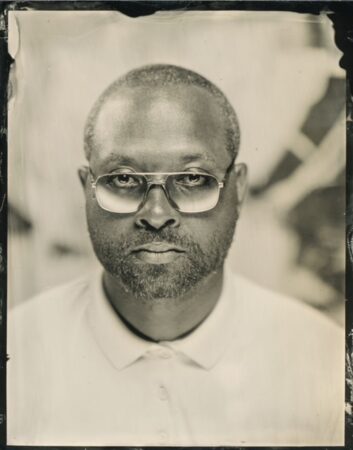
Ahmed Al Abaca is an African American composer (Film, Theatre, Concert), conductor, songwriter, pianist, and community facilitator. Creating power and possibility through music is the basis of Ahmed’s work. Raised in San Bernardino, CA, Ahmed understands the value of hard work and perseverance in the face of systemic and interpersonal challenges. Ahmed received their B.A in Music from Hunter College, NYC.
Ahmed believes in compassionate, honest, and genuine community engagement. Currently serving as Music Director of the South Loop Symphony Orchestra, a community orchestra in the Chicago South Loop neighborhood. Ahmed has exposed audiences to music that has been largely forgotten or overlooked by simply programming music from the 20th and 21st centuries with an emphasis on Black, Women and local composers. The orchestra has also become a place of peace where musicians of all levels can come and play together without feeling overwhelmed and overworked.
Ahmed has worked with some of Chicago’s finest. From arranging and composing for D-Composed, a premiere all-Black String quartet, to conducting/writing for the Chicago Civic Orchestra Fellows. Writing string arrangements for Avery R Young, Chicago’s poet laureate, to performing with Sam Thousand and Deeply Rooted at the historic Auditorium Theatre. Ahmed has also had the pleasure of working with students from the C.A.M.P. program. A program that gives free music lessons to children on the west side of Chicago, to composing for and conducting the orchestra students of Niles West High School. Outside of Chicago, Ahmed has had works performed and commissioned by several of America’s top orchestras, chamber groups and community orchestras: The Fayetteville Symphony, The Raleigh Civic Chamber Orchestra, The Florida Orchestra, The Atlanta Symphony, The San Jose Chamber Orchestra, The Knox-Galesburg Symphony, Oakland Symphony, The Arlington Philharmonic, Grant Park Music Festival (fellows and orchestra), The Colour of Music Festival Orchestra, New Orchestra of Washington, The Fort-Dodge Symphony, and the University of Missouri, Columbia Wind ensemble.
Steven Greene

Steven Greene is a professor of Political Science at North Carolina State University, where he has been since 2002. He received a B.A. in Political Science from Duke University and M.A. and Ph.D. from Ohio State. Greene’s research and expertise focuses on American public opinion and American elections, broadly. He has more specific interests in gender and politics, media and politics, political parties, and North Carolina politics. His research has appeared in a wide array of peer-reviewed Political Science journals, including, The American Political Science Review, Political Research Quarterly, Social Science Quarterly, and Gender and Politics. Greene’s book, published, with Laurel Elder of Hartwick College, is The Politics of Parenthood:Causes and Consequences of the Politicization of the American Family.
Greene provides regular commentary on national and North Carolina politics, and I have appeared on BBC-4, CBS Early Show, CNN, CNBC, WRAL, WNCN, WTVD, and WUNC-TV. He has been on the radio with NPR, WUNC, and stations in Canada, Jamaica and Colombia. His appearances in print media include The New York Times, The Times (UK), Reuters, Politico, National Journal, Christian Science Monitor, AFP, AP, and The Raleigh News & Observer as well as newspapers in Russia, Japan, Slovakia, and Spain.
In Greene’s free time, he loves hanging out with his four kids (including one who is an NC State student), coaching soccer, hiking, reading, and playing guitar.
Andrea Edith Moore
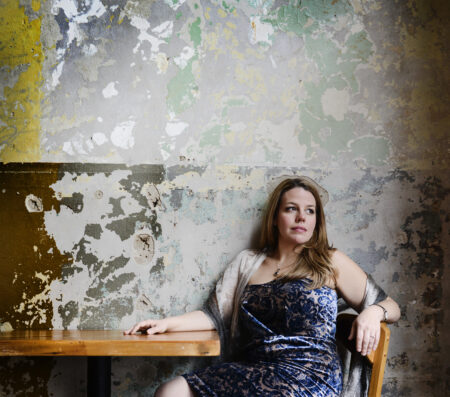
Soprano Andrea Edith Moore brings to her performances an “opalescence that is particularly served by her impressive phrasing and inherent musicality” and “wows audiences with her powerful and flexible soprano voice, her acting ability, and her dedication and drive” (CVNC). Andrea has enjoyed a wide range of collaborations with conductors, performing artists, and ensembles including Vladimir Ashkenazy, Gerhardt Zimmermann, David Zinman, Gerard Schwarz, Timothy Myers, Eighth Blackbird, Bill T. Jones/Arnie Zane Dance Company, Anthony Dean Griffey, My Brightest Diamond aka Shara Nova, McArthur Grant winner and Tap Dancer/Choreographer Michelle Dorrance, West African Kora master Diali Cissokho, and NC bluegrass perennials The Red Clay Ramblers. She has also worked on major collaborations with literary giants Allan Gurganus, Frances Mayes, Lee Smith, Randall Kenan, and Daniel Wallace, to name only a few.
Equally at home creating music of our time and of the distant past, she has starred in operatic roles ranging from The Governess in Britten’s Turn of the Screw, Micaëla in Carmen, Countess Almaviva in Le Nozze di Figaro, and Sara in Jennifer Higdon’s Cold Mountain. An accomplished concert soloist, she has garnered particular acclaim for her interpretations of much of the canon of Orchestral, Choral, and Operatic repertoire as well the Bach Cantatas, and German Lieder at venues such as The North Carolina Symphony, Teatro Colon, The North Carolina Opera, Hamburger Kammeroper, Eastern Music Festival, El Paso Symphony, Aspen Music Festival, Central City Opera, Baltimore Lieder Weekend, Duke University Chapel, the NC H.I.P. Festival, the Munich Residenz and Museum for Egyptian Art, and the Richard Tucker Foundation.
Andrea’s commitment to voices from her native North Carolina has led her to commission, premiere, and perform new works by NC composers including Kenneth Frazelle, Tarik Ghiradella, Allen Anderson, Robert Ward, and numerous others. She produced, premiered, and developed Family Secrets: Kith and Kin with composer Daniel Thomas Davis and recorded this chamber opera on her debut album, released on Albany Records in 2020. The album was hailed as “A major new work… Five stars: A fascinating new chamber opera… Moore’s singing is hauntingly intense.” (Fanfare Magazine) The American Record Guide described it as “a slice of southern culture that could easily pass under your radar, and that would be unfortunate.” The record was a 2022 GRAMMYⓇ nominee under producer Elaine Martone’s “Classical Producer of the Year” nod.
Her second album Searching the Heart, released on Composer’s Concordance Records-NAXOS, is currently up for GRAMMYⓇ Consideration. “Moore sings the songs,” of her contemporaries, four living American composers, “with a glowing voice. She inhabits them thoroughly” (The American Record Guide). Her third record, Music for Falling and Flying, now out on Neuma Records, features the music of composer Nathan Hudson and poet Ben Loory.
Andrea is a prizewinner in the Metropolitan Opera National Council Auditions, was a fellow with the four-time GRAMMYⓇ -winning ensemble Eighth Blackbird at the Blackbird Creative Lab, and has twice received the Yale School of Music Alumni Award. She holds degrees from Yale University, Peabody Conservatory of Music at The Johns Hopkins University, and UNC School of the Arts. Andrea is a full-voting member of the Recording Academy/GRAMMYSⓇ.
A teacher of voice for over 20 years, she has educated singers at Yale University and served on the voice faculty of UNC Chapel Hill for nearly a decade. Andrea currently lives, sings, and teaches a full-time private studio in Durham, NC. Her students have gone on to programs at the Curtis Institute of Music, Peabody Conservatory, New England Conservatory, Boston Conservatory, UNCSA, Johns Hopkins University, Harvard University, Northwestern University, Oberlin College, Meredith College, and have won the most prestigious scholarships and competition prizes in the country such as The Metropolitan Opera National Council Auditions, the Morehead-Cain Scholarship, the Robertson Scholarship, and the Kenan Scholar programs.
Andrea currently serves as the board chair of Mallarmé Music, now in its 41st season, and is also a co-Artistic Director of Faith & the Arts, the presenting arm of St. Matthew’s Episcopal Church where the arts are the forum for spiritual connection. With her husband Shannon Healy, she owns the James Beard Nominated craft cocktail bar Alley Twenty Six.enting arm of St. Matthew’s Episcopal Church where the arts are the forum for spiritual connection. With her husband Shannon Healy, she owns the James Beard Nominated craft cocktail bar Alley Twenty Six.
Julia Perry
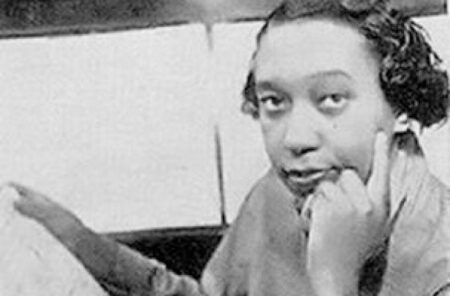
Julia Amanda Perry was an American composer, conductor, and teacher. She achieved acclaim for works that blended 20th-century European techniques with the music idioms of her Black American heritage. Her compositions include three operas, 14 choral works, 12 symphonies, many vocal works, and several chamber works for eclectic instrumental combinations.
Born in Lexington, Kentucky on March 25, 1924, Perry grew up in Akron, Ohio, playing violin and piano. She went on to study piano, voice, and composition at Westminster Choir College, where she earned her bachelor and master of music degrees, and received conducting training at The Juilliard School. Her works from this period are mostly songs and choral music, which are heavily influenced by spirituals. Some short pieces incorporate aspects of the blues.
Perry also spent summers at the Berkshire Music Center in Tanglewood, Massachusetts, where in 1951, she studied composition with Luigi Dallapiccola. The following year, she received a Guggenheim fellowship to continue studies with him in Florence, Italy; another Guggenheim fellowship in 1954 enabled her to study with Nadia Boulanger in Paris, France. While in Europe, Perry developed an abstract style of which dissonant harmonies, shifting rhythms, and contrapuntal textures are prominent characteristics. She also became active as a conductor.
In 1959, Perry returned to the United States. During the 1960s, her works were performed by the New York Philharmonic and other major orchestras to critical acclaim. She received numerous awards and accolades, including a National Institute of Arts and Letters Award in 1964. In response to the civil rights struggles of the 1960s, Perry sought to reference Black American musical idioms more explicitly in her compositions. Works like A Suite Symphony (1976), for example, draw on rock and roll and rhythm and blues.
In 1971, Perry suffered the first of several strokes that left her paralyzed on the right side. Undaunted, she taught herself how to write with her left hand. She continued composing until her death, at age 55, on April 24, 1979, in Akron, Ohio.
MEET THE PERFORMERS
Raleigh Civic Chamber Orchestra
Flute/Piccolo
Cindy Chastang
Anna Lee
Oboe
Shannon Neu
Cameron Kellner
Clarinet
Lecia Cecconi-Roberts
Lesley Chao
Bassoon
Tim Brown
Daniel Ponder
French Horn
Matt Behrhorst
Alex Troutman
Trumpet
Ganesh Om
Srikar Desemsetti
Samuel Sollinger
Trombone
Michael Thomas
Piano
Timothy Vo
Percussion
Ashlee Dudley
Thompson Jones
Vadin Ha
Harp
Catherine Clodfelter
Violin
Angela Feldman
Lisa Forman
Kim Hagan
Li-Yuan Ho
Ethan Huang
Francine Hunter
Patrick Jones
George Li
Levi McLaughlin
Bethany Mostert
Viola
Noah Anderson
Brendon Hablutzel
Brant Johnson
Evan Martin
Jose Muniz
Riley Partin
Cello
April Dobbs
Charlotte Frazier
Paul Spears
William Ellyson
Bass
LaBron Thompson
ACKNOWLEDGEMENTS
This program is funded in part by the City of Raleigh, based on recommendations of the Raleigh Arts Commission.
NCArts.org
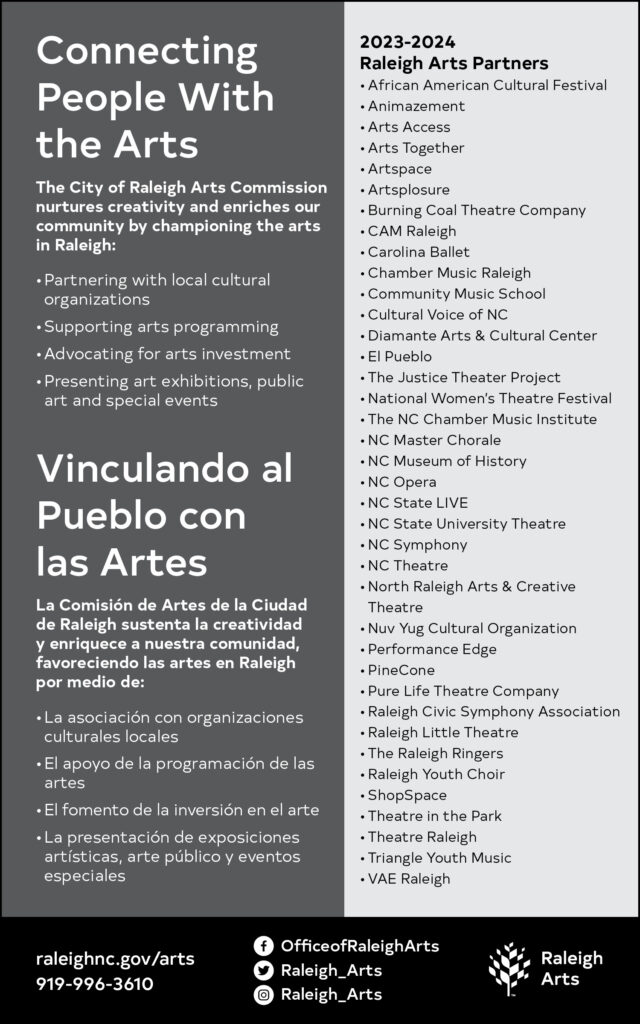

MORE FROM THE DEPARTMENT
EXPERIENCE MORE ORCHESTRA CONCERTS
Concert Email Sign-up
- Categories:

